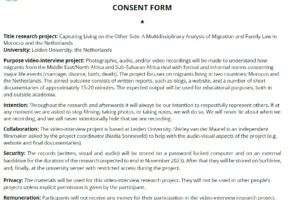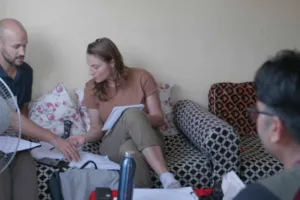Finding the right angle
Finding respondents is one thing, getting them to open up is another. It’s all about finding the right angle. Sometimes you make the basket on your first try, but more often, it takes patience, timing, and a few rebounds.
In academic research, there are typically four main stages: study design, data collection, analysis, and writing results. However, the reality is more complex, with challenges like unpredictable transitions between phases and the significant logistical and personal impacts.
To address this, we've expanded our framework to include administrative tasks and personal impacts, aiming to provide a more realistic portrayal of the research process.

Finding respondents is one thing, getting them to open up is another. It’s all about finding the right angle. Sometimes you make the basket on your first try, but more often, it takes patience, timing, and a few rebounds.

Informed consent is an ongoing process, not a one-time formality. Throughout my research, I repeatedly sought respondents’ consent to ensure they remained fully informed and felt comfortable.

Interviews often unfold in a far more dynamic and unpredictable manner than presented in methodological textbooks. This interview highlights the challenges of conducting a qualitative interview in a multilingual setting.